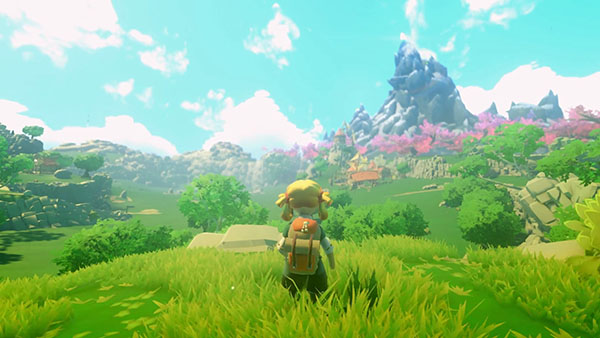Platforms:
PS4, PC
Released:
July 18, 2017
Publisher:
Prideful Sloth
Developer:
Prideful Sloth
Yonder: The Cloud Catcher Chronicles comes from Australian Studio, Prideful Sloth Games, as their first big project that creates a world for you to explore, traverse and experience. Yonder attempts to hold up this aspiration with the story of a lost young child discovering their hidden past in a beautiful fantasy land.

Yonder is somewhat unique in its approach to the open world / sandbox genre, favouring true pacifism as a main component of the game. There are no monsters to fight and nothing to kill. Gathering all resources is achieved through hard labour with tools, not by slaughtering monsters. This is a completely different approach to the standard and one that could be considered a gift. Yonder places no restrictions on level requirements, instead choosing a non-linear style where story, farming and random adventures are all approached as separate elements within the game.
You can engage in any element you wish and leave behind any you dislike without issue. You may freely explore the world participating in only the story without ever having to touch the farming, or vice-versa. An RPG without levelling, health, time restrictions and one that is completely free of confinement. This is funnily enough a game called Yonder where all you have to do is wander. A game where almost nothing is required from a player other than what the player chooses to engage in.

Mingling with the local wildlife is all about befriending them, not killing them. You can help out by cultivating their homeland, reducing the chaos in the area and by planting trees nearby. By planting trees in these areas animals become easier to tame and lead back to your farms. Tending to your farm animals will lead to products and resources depending on their happiness and type. Yonder’s minimalist farming recalls some of the best parts of early Harvest Moon without any stamina or time restrictions.
The story itself is very appropriate to the pacing of the game, with areas of dark, malevolent aura called Murk covering small spots across the land. The Murk does no harm or spread further than where it starts. Players are able to remove it through the power of the fairy-like Sprites, which feel very Spyro the Dragon. Collecting these Sprites is the only form of real progression in Yonder; finding the Sprites will allow you to ‘chase’ away or dispel the Murk, this unlocks new areas or hidden secrets.
Gemea, the world we have been washed up on, doesn’t actually need saving. With the Musk just lingering and no real danger in sight the land is still prospering. There is no conflict and each town is flourishing just fine regardless of your presence. While there is an emphasis on restoration, the people are all cheerful and just send you on various fetch quests across the map. This doesn’t lead to much excitement really. Villagers will send you on an errand and reward you for it, but that’s about it. This is easily the worst of the open world systems, where quests are reduced to busy work that in no way impacts the progression of the game or world. Some saving grace here is the dialogue. The villagers often reminded me of Animal Crossing, each with a unique comedic comment that was filled with character, but each would only have minimal interactions and witty lines.
No real satisfaction comes from completing the story and quest lines, as the cheery tone and calm sense of play that is built up throughout the game is immediately broken by a strange finish. While you are trying to discover who you are, the history of Gemea and why the Murk has infected the world, the game just kind of ends. I will say it’s different but it could have been more engaging.
Positive:
- Soothing and relaxing
- Farming is enjoyable
- Cute designs
Negative:
- Monotonous fetch quests
- Limited customisation
- Unfulfilling storyline
Yonder is a game with a whole lot of influences from a whole lot of games. While this makes for some fun elements, it fails to allow a ‘real’ identity to come out through the variety of other games it has cut and pasted into its world. While you could say that Yonder is distinctive in its multitude of ideas and crossing genres to merge winning formulas, this doesn’t always completely work. Yonder has its best moments when you forget everything else and just explore.










